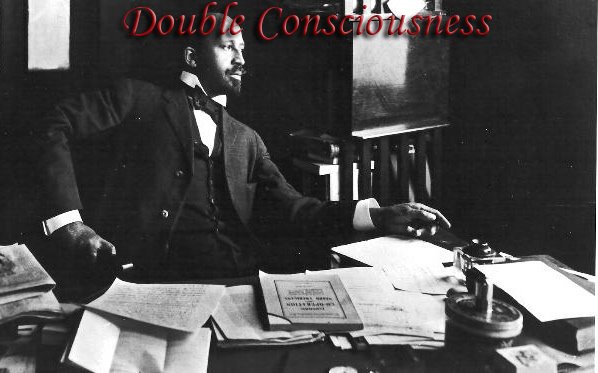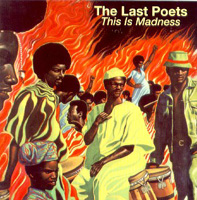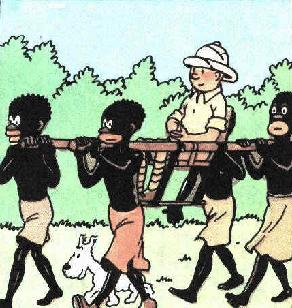 As I've stated previously I was getting some bad posts e-mailed to me for this months Erase Racism Carnival. So I decided to do some searching of my own to find some posts and, I'm pleased to say, I found some great ones, but not as many as I would have liked. So I please to announce this months (mini) Erase Racism Carnival.
As I've stated previously I was getting some bad posts e-mailed to me for this months Erase Racism Carnival. So I decided to do some searching of my own to find some posts and, I'm pleased to say, I found some great ones, but not as many as I would have liked. So I please to announce this months (mini) Erase Racism Carnival.We first start off with a post about white writers and white privilege from the blog We Can Always Dream:
Your privilege blinds you.This white privilege obviously propels this society together and affects leftist ("non-racist," supposedly) circles as well as Donna explains on her blog:What is white privilege? You can look at that link (or Google it), but the basic idea is that in America, if you’re white:
- you don’t have to prove you’re a good person
- you were preferentially treated by everyone from your kindergarten teacher on
- you don’t have to think about race, because being white is a given.
The word privilege trips people up. I can hear you now … “But I earned everything I got! I waited in line like everyone else! No one gave me anything!”
The problem is that you don’t know your history. Do some research.
And speaking of elections, the BlackAgendaReport weighs in on Obama from a post written by managing editor Bruce Dixon:I got an email from the wonderful Elle PhD to alert me to the latest white women feminist shenanigans being reported at the Washington Post: To Women, So Much More Than Just a Candidate. Of course by women they mean the default women, middle to upper class white women, with some ageism thrown in for good measure since they show little respect for the decision making abilities of younger women too.
…
“During the NOW tour across Ohio, the makeup of each audience was almost exclusively white, middle-age women, many of whom had joined the organization in the late 1960s or 1970s.” People vote for who they think can best represent them. I understand perfectly well why this demographic is excited for Hillary Clinton, is showing up at her rallies, and is voting for her. But for some of us having a vagina isn’t enough, because she will be voting for white, middle aged, middle class interests. Not to mention corporate lobbyist interests, and starting wars to prove she’s as tough as the guys, which I hear is her excuse for her Iraq War vote.
Obama's unconditional affirmations that America is “inherently good”, that white racism is not endemic, that “radical Islam” is the enemy, that apartheid Israel is a “stalwart ally”, and that his pastor and spiritual mentor, a man who accurately reflects the views of most of Black America is an angry, divisive old uncle stuck in the fifties and sixties --- all these may restore his credentials among whites as the candidate of “racial reconciliation”. But what is being reconciled here? Aside from the color of the president's face, what is being changed?The Pudgy Indian weighs in on Rev. Wright's speech in a post titled "Wright Was Right:"
Wright...is right.Which brings us to the Angry Brown Butch and her post on Ferraro in where she tackles similar issues that Donna brought up:
Racism is alive and well and it has taken on an insideous form that is commonly accepted by U.S. citizens. Barak, or ESPECIALLY those racist campaigners within the Hillary/Ferraro camp, could pick up this ball and bring a greater understanding of the issue of race and racism to this nation, but such a thing would never happen because that is NOT the way the system is designed and the next king or queen will have to play along with the system. That is why Barak will distance himself from Wright, that is why the Hillary camp will continue its racist methods to attack Barak, all without calling him "nigger," of course.
I mean, yes, sexism is certainly alive and well in our society. And one might even argue that subtly sexist language does get a pass more easily than equally subtle racist language. But one only need look at how race is one of most reliable predictors of things like poverty, incarceration, access to quality education and access to health care in American society to see the immense damage that racism does and the immense power that it holds in our society. But of course white feminists who take this tack would think that sexism is worse that racism in this country, because they’re not affected by racism. They possess the privilege unique to white people to ignore and elide the true affects of racism. I think that reason why I haven’t caught any prominent feminists of color putting forward this position is because, as women of color, we don’t get to ignore racism or sexism, and we realize that you can’t just put them on a set of scales and weigh them against each other.And white privilege, obviously, affects the ever so popular blog Stuff White People Like, as explained by Gary Dauphin:
Nothing gets under my (colored, nearly-middle-aged) skin like the spectacle of a twentysomething white kid doing what twentysomething white kids do all the time, namely, play on some or another aspect of their race for smug fun and profit. Lander has already reportedly been offered a $350K-plus book deal from Random House. (Can a VH1 Special be very far behind?) People of color are constantly accused of playing various race cards, but "White boy makes good by being white" is hardly a man-bites-dog story.La Chola was apart of a mini-blogging controversy over white privilege, supremacy, and the history of Planned Parenthood in where she gave us good advice on studying the history of institutions and organizations in a country defined by race and white privilege/supremacy:
It’s dangerous to not know the history of an organization–even more dangerous to not know its present. Yes, PP has done some absolutely amazing and brilliant things. PP has also done some detestable and horrific things–and it is WRONG to let the detestable and horrific things pass because of the good things. It’s even worse to call a woman of color who has had a bad experience with her reproductive life “stupid” because there is no critical analysis of how a historically “population control” centered institute is currently conducting its business. As I said in my comment, the only reason PP is where it is today is because women of color stood up to all the people who attempted to silence them with calls of “stupid” and “worthless” and demanded to be heard.Abagond also draws our attention to the studying of history and white-washing history:
Its golden age was in the 1950s. From about 1955 to 1975, the civil rights movement, the Vietnam war and Watergate destroyed the faith of many. But now that most Americans are too young to remember those things, apple-pie America is making a comeback.Tara blogs about comparing oppressions and the dangers of whites comparing their certain oppressions as similar to Blacks and other people of color in America:Judging from Obama’s speech on race in March 2008, most Americans seem to believe in it.
...
Most black Americans do not seem to believe in apple-pie America, much less live there. Their forefathers came to the country as slaves and they see how white people are still acting. They are not fooled.
But most white Americans do seem to believe in it, whether they live there or not.
This difference between black and white America is causing trouble for Barack Obama, a black man who would be president. The things his wife and his minister said come from beyond the apple pie and unsettles many who live inside it.
I also need to say that if I hear the "fat is the last acceptable oppression" meme one more time, I am going to scream (louder). Fat hatred is often blatant, shameless, vitriolic, and completely public. But guess what? So is racism! (And classism, heterosexism, ableism, and sexism.) Racism is institutionalized into our laws, our classrooms, our work places, and our daily interactions. Just because some white folks think it's unacceptable to say the n-word, doesn't mean that racism is gone or that it's not "acceptable." When people in the fat acceptance movement say that fat is the last acceptable oppression, it alienates and invalidates the struggles of people of color, who know first-hand that racism not only exists, but that it is also very much "acceptable" in polite society.In the blog RaceWire Julianne Hing writes about how media representations and immigration laws make immigrants vulnerable and how an immigration official, such as Baichu, is able to exploit immigrants:
...
Let's also talk for a minute about beauty standards. There is a significant portion of the fat acceptance movement that is fighting for the right to be seen as "pretty, too." They want to fight for the standard definition of beauty to include them too, as if they have been denied some god-given right to be seen as beautiful. But when this demand is articulated, there is no consideration or thought about the fact that women of color have always been excluded from this category, and are masculinized, exoticized, or otherwise been seen as exceptions to the pretty rule (i.e. "She's pretty for a [insert non-white race here] girl!"). So, arguing for the "right" of plus sized white women to be let into the pretty club does not address us or our struggles with the problematics of beauty standards.
Part of it has to do with the vast discretionary power immigration agents actually have. It’s a job with little oversight and nearly limitless opportunity to exploit immigrants – the power differential is too great for abuse not to be a near inevitability. But the recent jump in reports of sexual assault is not just about bureaucratic corruption. It’s a symptom of the post-9/11, anti-immigrant fever that continues to burn across the country. Mainstream media’s dominant characterizations of immigrants the last 7 years have been that of the criminal alien, the dark-skinned terrorist, the unwelcome foreigner. We’ve seen it more widely manifested in workplace raids, restrictive local ordinances, and the vitriolic daily debate taking place on talk radio. This cultural climate emboldens folks like Baichu to act with impunity against people who’ve been systematically demonized in the nation’s political debates.Karnythia, on The Angry Black Woman, blogs about comments that Pat Buchanan made on his blog about race and affirmative action:
It’s this deliberate misinformation that bolsters the idea that black people are somehow magically getting ahead without merit, and fosters the resentment you see so often from whites that argue so vociferously against the concept of white privilege and against affirmative action. Never mind that the main beneficiaries of affirmative action have been white women. No, let’s just scream about that one time a POC “stole” a job that you really wanted/needed/preferred and ignore the part where you weren’t entitled to that job above all applicants.Finally, we end with a post from "Suddy:"
Wherever I went, wherever I traveled, the mystery of Filipinas followed. No one really knew what Filipinas were about except what they had briefly observed in the news or the stereotypes projected by popular culture. Filipinas were sexy, docile, domestic workers or mail order brides. They were quiet, submissive, and eager to please. They loved serving their husbands and tending to their children. Filipinas, most importantly, were born in and from the Philippines.
I was none of those things.
Which made her start her blog:
Bloggers need to raise awareness of the social injustices that jail the Filipina spirit (such as global sex trafficking, abuse of domestic workers overseas, immigration issues, and enslaving poverty) and they also need to be aggressive in their denouncement of Filipina commercialization. To enhance the online image is to affirm the authentic presence of the Filipina. It is time for us to come out of the dark with strong voices, accents, poetry, opinions, music, intelligence, theories, and ideas. Bloggers need to do this by promoting work, featuring accomplishments, and highlighting leadership roles held by Filipinas.And as we end with this months Erase Racism Carnival we should all realize that blogging and creating new forms of media will contribute in the fight against white privilege, racism, and to help solidify the voices of those whom are left voiceless in a white dominated media structure.
My online voice is the one facet of media in which I can contribute to a new definition of the Filipina.
Image From:
Storied Mind

 I was browsing through my local book store (mostly used books) looking for a good find when I stumbled across a book in the sociology section titled Uprooting Racism: How White People Can Work for Racial Justice by this guy I've never heard of,
I was browsing through my local book store (mostly used books) looking for a good find when I stumbled across a book in the sociology section titled Uprooting Racism: How White People Can Work for Racial Justice by this guy I've never heard of, 










